 Search
Search
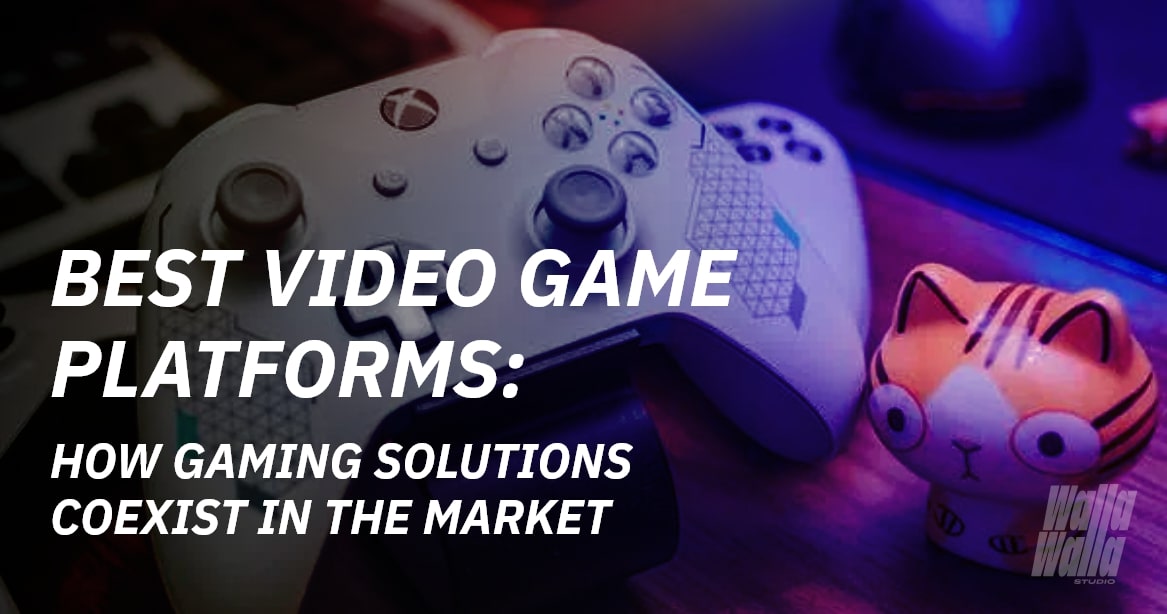
The gaming industry can never rely on a particular type of hardware as long as gaming software continuously evolves. Besides, the world gamers’ audience is not homogeneous in financial capabilities and personal preferences to use only consoles or PCs. In addition, video game development cannot be separated from the trends and technologies that impact the entire digital sector. Cloud computing, AR/VR solutions, mobile gadgets, and even TV have their specific shares in video gaming.
The number of users of one or another video games platform fluctuates over time according to a particular market conjuncture: a new best-selling title can drag a portion of players toward the platform for which the title is сreated. Similarly, a long-awaited next-gen device with state-of-the-art characteristics can change the current balance between the existing gaming systems. The never-ending competition of brands, technologies, and titles prevents the gaming industry from getting rigid in terms of the platforms’ popularity.
Every video games platform has to compete with rivals to occupy a particular niche in the sector. No explicit regulation is observed there except for the notorious invisible hand of the market. And nothing can be better for the players than the constant fighting between platform manufacturers in which the fittest survive. Let’s investigate how video game platforms coexist and what technologies help them hold their user audiences.
What are video game platforms?
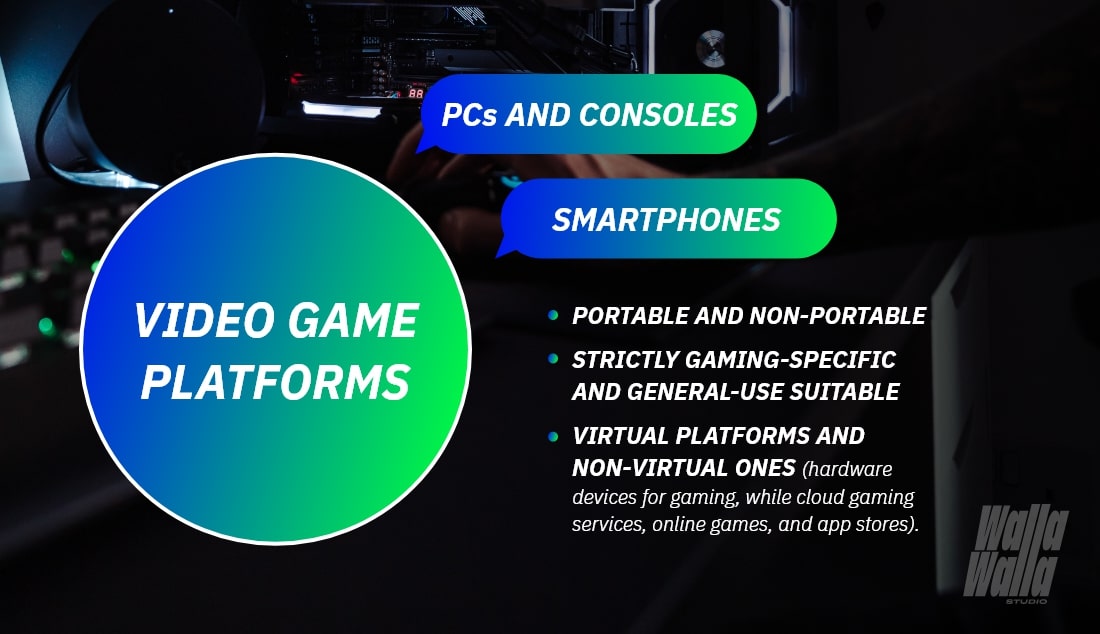
Simply put, a video game platform is a technical carrier capable of executing gaming software. In most cases, this is about hardware, but not always. If we consider the subject from the player’s perspective, a streaming service with gaming content is rather software despite the servers and other integral hardware elements it runs upon.
If we follow a conventional vision of the subject, such hardware carriers as PCs, consoles, and smartphones constitute the lion’s share of the existing gaming platforms. Cloud gaming services and VR facilities are gaining popularity but cannot compete with, for instance, consoles, not to mention smartphones in popularity.
Some experts divide all game platforms into two big classes: portable and non-portable. We doubt such a division is reasonable. PCs seem to relate to non-portable platforms according to such logic. But what about powerful gaming laptops? Consoles meet the non-portable characteristics better if we ignore the Nintendo Switch and Steam Deck.
A more logical division should, as we believe, include the two different classes of gaming platforms: strictly gaming-specific and general-use suitable. The first class comprises consoles only, while all other technical solutions belong to the second class. Why so? Even a specially designed gaming PC can be used for many other tasks and purposes besides gaming.
Yet another classification can have virtual platforms and non-virtual ones. The latter implies hardware devices for gaming, while cloud gaming services, online games, and app stores constitute virtual platforms.
Classifying anything makes sense if such a classification helps better understand the observed objects or phenomena. Video game platforms happen to be too diverse to be straightforwardly classified. Let’s put academic approaches aside and examine gaming platforms one by one.
The most popular gaming platforms
Popularity as such is a matter of taste. It is too volatile in the sectors where changes are dynamic. Gaming is such a sector. Hence, the popularity of any platform can hardly belong to the facts established once and for all. It is possible to find tons of stats on the internet about the market share of one or another video game platform. So what? Tomorrow the stats may (and, most probably, will) appear obsolete. We propose to observe the existing video game solutions according to their gaming focus: the more gaming-specific the platform is, the higher its position is in our review.
Consoles
Consoles are rightfully considered the King among video game platforms. They are intentionally designed for playing video games. A console is a gaming computer in its essence, and nobody uses consoles for anything else, even if it is theoretically possible. Consoles run gaming software in a way that provides the purest gaming experience to players. Consoles constitute a standalone class of hardware made for the sake of playing video games only.
The largest video gaming studios create their premium products for consoles first of all: versions for PCs and smartphones usually appear after the title is released for consoles, and not in each case. Many AAA-class video games can be played only on consoles. Moreover, there are video games created just for consoles of a particular brand. This is why consoles are the least democratic gaming platforms in terms of the user audience.
Consoles cannot be cheap by definition: modern gaming computers must have powerful hardware to run games with sophisticated graphics. Some may take consoles as a status product since no other utilitarian functionality except playing video games is available for quite a significant price. It’s not as if consoles are unaffordable for a mass audience. Still many people prefer spending an equal sum for PCs capable of running many other types of software in addition to video games.At the same time, almost all console users may swear that having tried a console once, they start taking all other gaming platforms as palliatives. To sum up, consoles are expensive, narrow-specialized, and capable of bringing an unparalleled gaming experience to players. The market of gaming consoles is occupied by a few super-brands.
- PlayStation by Sony

The latest iteration of Sony’s most famous console is the PS5. It is a massive piece of hardware with quite a futuristic design. The pros of this platform include:
- A short game loading time.
- An advanced controller with enhanced haptics.
- Exclusive titles.
- Compatibility with PS4 for older games.
- Support for VR.
Limited storage space is the only apparent drawback of the platform. Due to a current shortage of chips, buyers face problems purchasing PS5 worldwide: retailers still cannot maintain their stockpiles regularly.
- Xbox by Microsoft
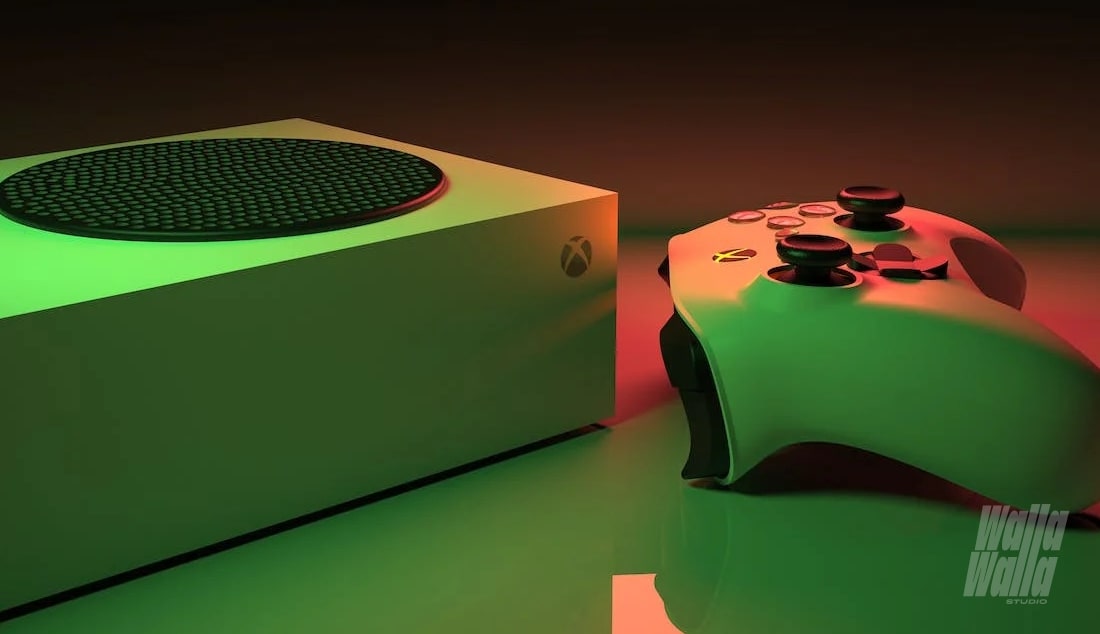
Xbox Series X is the most powerful gaming platform from Microsoft. It outperforms all previous Xbox versions in many aspects:
- It has larger storage than the PS5.
- A low-latency mode provides a better response from games.
- All previous Xbox games are accessible with the series X.
- A very efficient cooling system makes Xbox Series X one of the quietest consoles.
- The Game Pass library offers hundreds of premium titles for Xbox users.
Microsoft goes further than Sony in cross-platform opportunities: the Game Pass is also available on PC. Besides, users can try titles for low monthly fees with Project xCloud integration.
- Switch by Nintendo
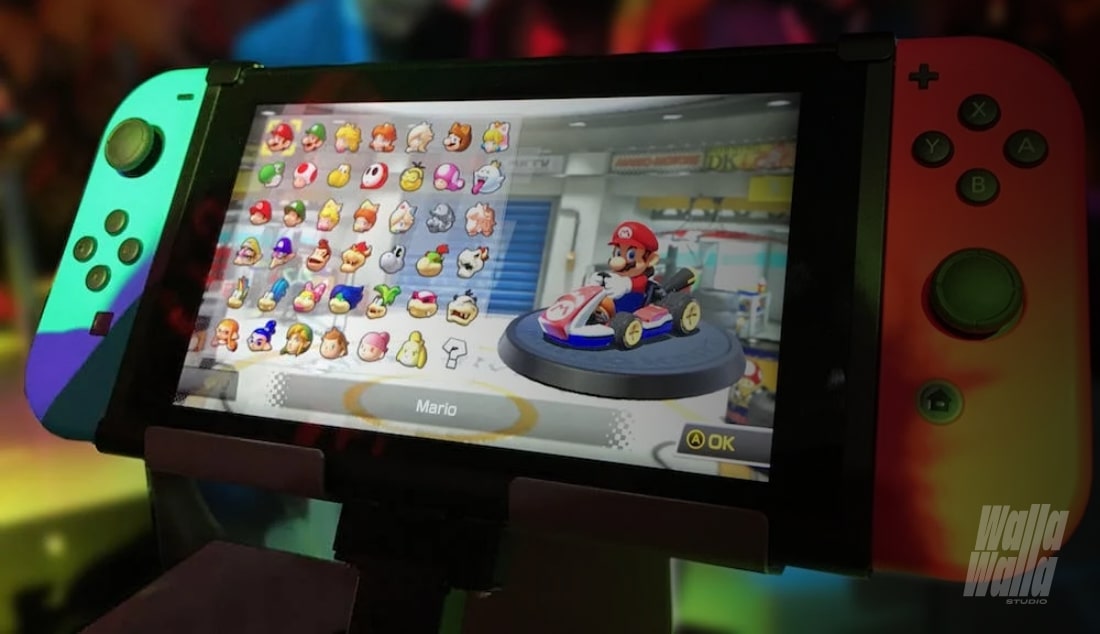
In contrast to both PlayStation and Xbox, the Nintendo Switch series offers a handheld console. Nintendo introduced a new portable format of gaming consoles only in 2017. A combination of a sharp display, a long-lasting battery, and an extensive game library makes Nintendo Switch an exceptional solution for providing an on-the-go gaming experience. The Nintendo Switch OLED is the next-gen upgrade of the gaming platform with a wider and more vibrant screen. Besides, the onboard audio is improved as well. The Nintendo Switch platform allows arranging group gaming parties that remain hardly possible for users of stationary consoles.
- Deck by Steam
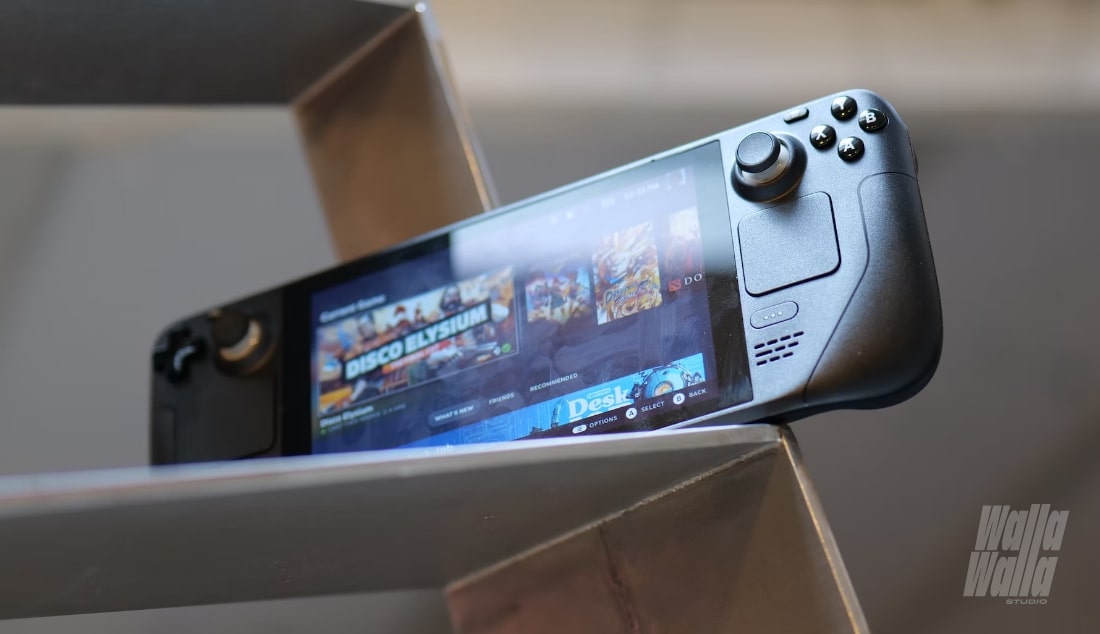
The Steam Deck is another handheld gaming console with better specs. This video game platform shares the same approach to portability as Nintendo Switch. However, the Switch series cannot boast such a diversity of games as the solution from Steam can. The profound hardware characteristics and a massive library of high-quality Steam games make Deck “Switch on steroids” in terms of the gaming experience. Of course, handheld consoles do not allow games to run and look as great as on PlayStation, Xbox, and PCs. However, the Steam Deck is a confident step toward high-quality gaming in a portable format. Unfortunately, after making a pre-order, buyers have to wait a couple of months at least due to a shortage of the Steam Deck consoles on the market.
Personal Computers

PCs cover the most significant video gamers’ audience due to a number of inherent features. Desktops and laptops are universal computers for running any software, including video games. Many game developers consider PCs a primary gaming platform for their software products. Many gamers, in their turn, are not going to change their computers for other video game platforms anytime soon. Only more advanced gaming PCs can make them change hardware.
All professional eSport teams and most amateur gaming enthusiasts are tech-savvy enough to assemble powerful gaming desktop PCs on their own. Moreover, a custom-made gaming computer is a norm among avid gamers. At the same time, ordinary video game players can be satisfied by average serial PCs with tech specs meeting the requirements of their favorite games. What are the advantages of PCs compared to other platforms?
- PCs provide the best gaming performance in terms of computing power and visual capabilities;
- PCs (especially desktops) are easily upgradeable, partially or completely;
- PC versions of video games are cheaper, while the choice of titles is wider with such resources as, for instance, Epic Game Store and Steam, where sell-offs are frequent;
- Various accessories and peripheral devices that improve the gaming experience are easily accessible for PC users;
- Streaming services, cloud gaming platforms, and the whole universe of web-based online games constitute the realm of virtual gaming resources to which a personal computer is a primary gateway;
- Almost all video games made for consoles have PC versions, but not vice versa: the super title World of Warcraft, for example, is accessible only on PCs;
- PCs are the most practical all-in-one hardware worth buying in terms of ROI: neither mobile gadgets nor consoles can compete with PCs in the versatility of tasks performed;
- The performance capacity reserve of an average gaming PC is usually enough to stay actual for the upcoming game releases over the next few years;
Smartphones

Mobile devices such as smartphones and tablets dominate the gaming market in terms of the number of users. Two prerequisites determine such a situation:
- Smartphones are the most appropriate gadgets for everyday use. Their price/functionality ratio is the best compared to other computers;
- Many manufacturers provide their flagship models with excessive computing capabilities allowing smartphones to cope with the most demanding video games.
Mobile gaming platforms make the players’ audience count in billions nowadays. The biggest part of both mobile app stores (Android and iOS) is mobile games. The Android app store’s very name Google Play speaks for itself. Almost all best-selling titles have their mobile versions.
Numerous game creators release video games for the mobile gaming platform only. Many types of simple video games are hardly worth having their versions for PCs and consoles: puzzles, stress-relief games (a bubble wrap popping simulator, for instance), and AR-based games implying the players’ mobility (Pokémon Go). Such mobile superhits as, for example, Angry Birds, with about 4 billion downloads, can leave any sophisticated AAA-class title for PCs and consoles far behind in both popularity and revenue.
What is the critical difference between mobile gaming and all other gaming routines? The thing is in the intent to play, as we see. You should find and plan a certain time to play games on a PC or console while your smartphone is always at hand. People can spend every waking moment playing games on smartphones when they are on their way to work or home. The dynamic and stressful schedules of the modern urban population require mobile gaming platforms to be a sort of psychological relief accessible anytime, anywhere. And smartphones provide it as few other things do.
Smartphone manufacturers rarely produce special gaming smartphones since the “ordinary” flagships like iPhone 14 are usually powerful enough to play any mobile game available in the market. Of course, quite a narrow niche of gaming smartphones is not empty: the ROG Phone by Asus and the Black Shark by Xiaomi is available for geeky mobile gamers.
Cloud Gaming
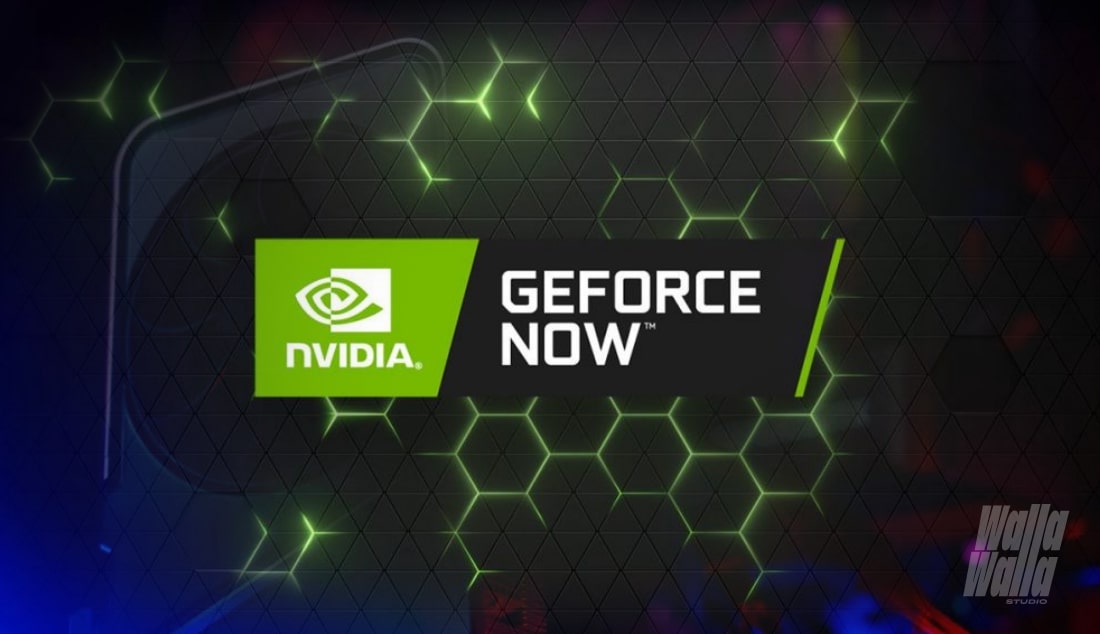
Cloud gaming is a logical step in the evolution of video gaming. The purpose of cloud gaming services is similar to what other cloud-based services provide: representing compute-intensive infrastructures remotely. Cloud platforms are the youngest among the existing gaming facilities. They are not too numerous to provide a wide choice for players. At the same time, a dozen top-notch cloud platforms decently fulfill their tasks to give a great gaming experience to users.
In general, a cloud game platform is a gaming library combined with hardware for running games. In other words, a remote server delivers gaming content to subscribers like it happens when, for example, Netflix delivers streaming videos. Hence, there is no need to have your own expensive gaming PC or a console to play demanding video games.
Any cloud gaming infrastructure implies powerful data centers that cover particular locations. Different cloud platforms have different approaches to their server facilities. One of the best cloud gaming services, Shadow, for instance, has several specially established data centers for American locations and two in Europe (Paris and Amsterdam) to cover a few Western European countries. Microsoft, with its Project xCloud, goes another way, using the existing Azure cloud infrastructure to provide massive coverage for remote gaming.
The software component of each cloud gaming platform implies a specially created application allowing subscribers to reach the hardware facilities from the client side. And again, the approaches to such a component differ for different cloud platforms. Shadow provides a remote desktop with Windows 10 that allows users to do whatever any normal machine with Windows 10 allows doing: installing new software, customizing the look, etc. It requires about 30 minutes to set up, but users can reach their remote machines almost immediately with a single click after the installation.
Another famous cloud platform, GeForce Now, provides access to its remote gaming facilities in a simpler way without Windows installation. In addition to keyboards and mouses, the service supports various gamepads (Logitech 710, for example) and controllers (Xbox One, PS5 Dual Sense, etc).
Cloud gaming performance differs from service to service as well. Most gamers agree that GeForce Now provides the smoothest gaming experience with 4K 60 fps, even for heavy games like Resident Evil 2. The service uses the latest GPUs with 24GB of RAM. At the same time, performance is not the only advantageous feature of cloud platforms. The option of family access is what many players appreciate when playing not-demanding indie titles on the Blacknut cloud platform.
Subscription is the only monetization model for all available cloud gaming providers. PlayStation Now, for example, starts from $5/month for a 1-year plan that is considered relatively inexpensive compared to Shadow ($9.99), not to mention Blacknut Family ($19.99). At the same time, users should have either the DualShock 4 controller to play on PC or PS4/5: no keyboard-&-mouse support is available.
The diversity of features and options provided by different cloud platforms witnesses that the niche is not monopolized yet. Besides, cloud technology as such is far from its performance limits. Players have every reason to anticipate new cloud game platforms appearing in the near future. The current competition between the existing cloud gaming services promises inevitable improvements in usability, coverage, performance, and price of the major providers in light of the growing appetite for remote gaming.
Gaming resources
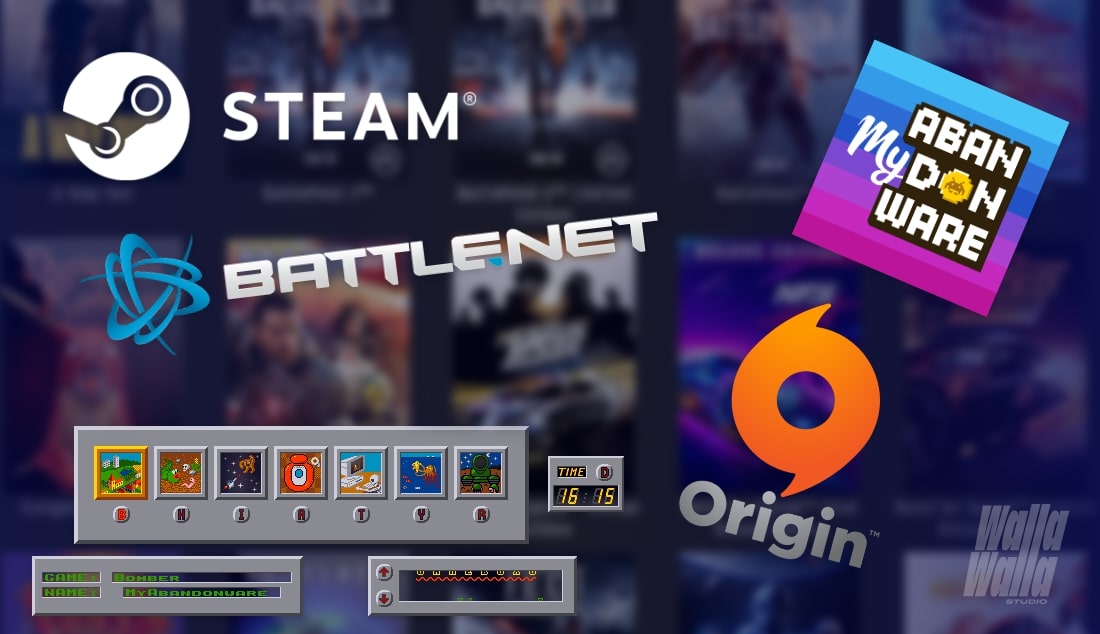
Special websites that provide access to games and other game-related content constitute a standalone class of video game platforms. Where do players find games? It mainly depends on the gaming hardware they use. Apple App Store and Google Play are the repositories for mobile games. Console manufacturers have their native distribution channels for video games. And a vast army of PC players visits various gaming-centric web resources to purchase and play games.
Steam
Steam has been for a decade and remains today an undisputed leader among web-based video game repositories. This universal gaming resource is evolving together with the entire sector. Steam’s game store offers more than 30 000 games to suit every taste. The user community of Steam really impresses: more than 130 million monthly subscribers from 249 countries use this web resource to play and buy video games.
Steam is more than just a game store. The Steam Deck handheld console is premium-class portable hardware for gaming. Some other peripheral devices for gaming, such as Steam Controller and VIVE Pro (a VR set from HTC), are available to improve the gaming experience.
The functionality of Steam is designed at a global scale: 28 supported languages, 80 payment methods for 35 national currencies, 400 servers around the world interconnected with 1TB fiber-optic cables, and the Steamworks environment for game designers and publishers. Even though Steam is a leading video game resource, it is not a monopolist: alternatives to Steam do exist.
My Abandonware
This quite a specific web-based gaming platform reflects one of the current trends in the gaming industry – “retrogaming”. The last few decades of gaming development appeared enough to make many players over the age of 30 feel a sort of nostalgia for old titles that were popular in the days of their turbulent youth. And demand always creates supply, as we know. My Abandonware offers more than 20 000 old games (released from 1979 to 2010) downloadable for free.
The maximally user-friendly interface of Abandonware allows players to download games without registration. Some available tools for advanced browsing help users search for old titles even if they remember neither the game’s name nor its publisher. The whole set of information for every available game includes all publishing data, instructions, manuals, reviews, and archives. And everything is free to download!
Origin Games
The gaming resource belongs to quite a famous company from California, Electronic Arts (established in 1982). EA is an official partner of some trademarks known to all gamers: Sports FIFA, Battlefield, Need for Speed, Apex Legends, etc. Players can download PC games for both Windows and macOS from the Origin Games website. The majority of the games are free. The global community of 600 million players using Origin Games as a video game resource speaks for itself.
Battle.net
This is one of the oldest and most popular online gaming platforms. It belongs to the world-famous game creators Blizzard Entertainment, which has many supertitles in its portfolio. The true superstar among them is World of Warcraft with its numerous versions. In fact, BE keeps continuously developing several series of popular gaming titles consisting of various releases. They are Warcraft, Overwatch, Diablo, StarCraft, and Heroes of the Storm. All titles from Blizzard are top-quality AAA-class video games. The state-of-the-art technologies and the constant desire to be at the forefront of gaming innovations make the Battle.net platform one of the best resources for players.
Which Gaming Platform Is Best for You?
As we can see from our present review, video game platforms are sufficiently diverse in technical aspects, approaches to players, costs, and business philosophy. When consoles are utterly straightforward about just gaming, PCs and smartphones are pretty multifaceted in functionalities. Cloud platforms stay aside from the competition between hardware carriers at all. Such a state of affairs in the gaming industry is beneficial for players capable of choosing gaming facilities according to their wallets and lifestyles. The only thing needed to make the right choice is knowing what video game platforms are and how they differ. We hope our readers are well-informed regarding the issue since the info they get comes from a professional game design studio with a strong position in the sector. Walla Walla Studio is always at your disposal, whichever gaming topic you may wonder about.


